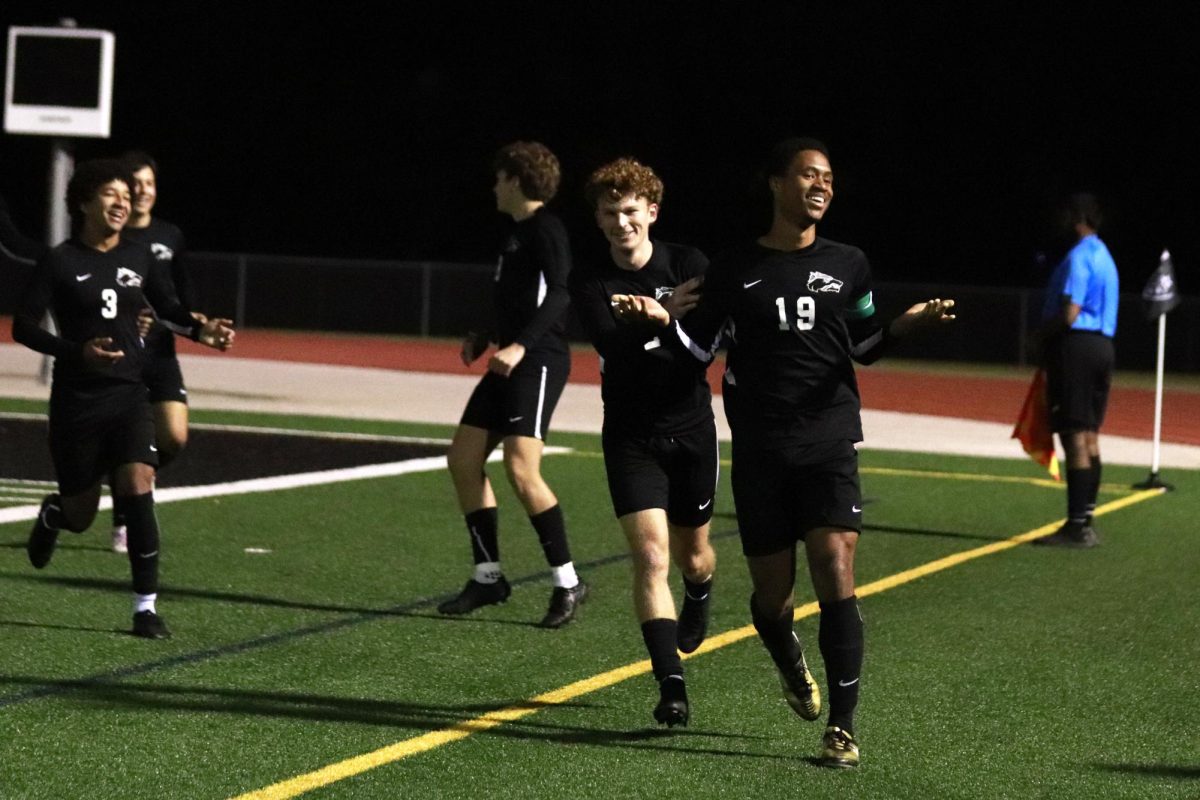It’s a Social World
The Need to Fit in Online, How it Develops
Photo Courtesy of Aahana Mulchandani
Reporter Aahana Mulchandani’s spam account is displayed, showing a variety of posts, from details of her recreational life to her school life. Such spam accounts fall under the category of fake instagram accounts, or FINSTAS, and affect FOMO by increasing engagement with social media due to the daily amount of posts that users get to their feeds. “Sometimes, I find myself scrolling endlessly through social media purely because I follow a lot of accounts that post funny content,” Mulchandani said. “It definitely increased my addiction to social media and especially with the pressure of upkeeping a spam account.”
May 18, 2022
Social media’s effects on today’s youth is more or less defined; it is capable of benefiting and hurting people at the same time, which makes it dangerous. It draws people in the minute they hear about it, and before anyone knows it, they are sucked in without a way to escape. One term that has come out of of social media is known as the Fear of Missing Out, or FOMO.
According to Psychology Today, FOMO directly appeals to the human desire to be a part of something, which is how social media is able to attract so many people to begin with. This need to see and be a part of lives on social media can turn into an addiction, according to the article.
“It only really affects me when I see people doing things that I want to do, or when I see groups of people I wish I was closer friends with,” senior Isabella Rios said. “When I see my friends post about going somewhere fun without me, I get really worried that maybe they don’t like me that much, they purposely left me out, or that they’re having more fun without me there.”
Freshman Tanvi Sankolli said she is not affected by FOMO as much due to the increasing disinterest in recent social media content. The trends and content really make or break the social media experience, according to Sankolli.
“Half the time, I couldn’t really care about what people are doing,” Sankolli said. “I’m more on Fandom Tik Toks, a mixture of all fandoms. I never really know what the Tik Tokers are doing right now, so I couldn’t really care if I’m missing out on those trends, because they don’t really interest me anymore. Before quarantine, I would say I would be very upset if I wasn’t seeing the Hype House, or whatever. Now, I honestly couldn’t care, and I’m more happy on the fandom side [of Tik Tok].”
Despite the lack of interest Sankolli has towards general content on social media, she said she does admit to feeling some effects of FOMO towards the content she does enjoy, such as the fandom side of TikTok.
“[My FOMO] is not really that bad,” Sankolli said. “But, for example, there has been this one meme going on about this one certain character, and I didn’t understand the joke, and I was so confused. I was searching for hours trying to find out what people were talking about. And then I realized that it was [from] this one specific Tik Tok and then found out it was sort of an inside joke. So, after that, I would say I kind of discovered [that] I was feeling a little like I missed out on that inside joke, so now whenever people say that inside joke, it’s just not funny to me.”
According to Psychology Today, FOMO can be associated with fatigue, stress and sleep problems. However, these effects can vary depending on the amount of addiction a student has to social media in general.
“I’m not extremely addicted [to social media],” junior Aayushee Dasmunshi said. “But I do get on it at least everyday. But, I can stay without it for several days. But a lot of my friends talk on social media, instead of messaging, so I feel like I’m missing out whenever I’m not on [social media]. But I’d say, on a scale of 1-10, I’d be an 8 when it comes to my addiction to social media.”
Social media has accelerated FOMO because people compare their regular lives to highlights of others’ lives, according to Verywell Mind. Comparisons between one’s life and their friends’ life can lead to one feeling worse about their own experience.
“When I see posts of people doing fun things together, sometimes that makes me compare myself to them and feel FOMO,” senior Klaudia Misztal said. “It makes me want to look at social media more to see what else I could be missing out on.”
In addition to FOMO itself, fake instagram accounts, or “finstas,” are also another way to increase engagement with social media itself. Spam accounts and fan accounts fall under the category of finstas, and increase engagement, and therefore FOMO, by providing daily posts to one person’s feed.
“I had [a spam account] for a long time,” senior Meredith Jenkins said. “But, I had to delete it. I enjoyed it because it works almost like a diary, because it’s like you’re posting every day, and it’s just your friends [who see that]. You get to post and, especially when you’re following other people, it’s like you’re seeing more intimate details. They haven’t worsened FOMO, but I would say I increased my engagement. I’m on Instagram more [because of these accounts].”
As illustrated by ScienceDirect, FOMO is linked to a greater use of social media and technology use versus age or gender. In order to counter the effects of FOMO, a person can try changing their focus, journaling and focusing on gratitude.
“I prevent feeling FOMO by reminding myself that social media doesn’t really matter in the long run and it isn’t a completely accurate representation of people’s real lives,” Misztal said. “And I try to spend time doing other things, like my hobbies or spend time with people in real life.”

![Posing with their UIL State Trophy, the Robolobos Van Halen Team beams with excitement after their win. “It was a team effort,” junior Noah Vo said. “I was happy because something happened in the first match and the match was also really close. So [when] they finally revealed it, I was pretty happy.” Photo courtesy of Amy Lovelace](https://cphswolfpack.com/wp-content/uploads/2025/05/IMG_0910-EDIT-1200x723.jpg)

![Broadcast, yearbook and newspaper combined for 66 Interscholastic League Press Conference awards this year. Yearbook won 43, newspaper won 14 and broadcast took home nine. “I think [the ILPC awards] are a great way to give the kids some acknowledgement for all of their hard work,” newspaper and yearbook adviser Paige Hert said. “They typically spend the year covering everyone else’s big moments, so it’s really cool for them to be celebrated so many times and in so many different ways.”](https://cphswolfpack.com/wp-content/uploads/2025/05/edited-ILPC.jpg)













![Bringing her arm over her head and taking a quick breath, junior Lauren Lucas swims the final laps of the 500 freestyle at the regionals swimming competition on date. Lucas broke the school’s 18-year-old record for the 500 freestyle at regionals and again at state with a time of 4:58.63. “I’d had my eye on that 500 record since my freshman year, so I was really excited to see if I could get it at regionals or districts,” Lucas said. “ State is always a really fun experience and medaling for the first time was really great. It was a very very tight race, [so] I was a bit surprised [that I medaled]. [There were] a lot of fast girls at the meet in general, [and] it was like a dogfight back and forth, back and forth.” Photo by Kaydence Wilkinson](https://cphswolfpack.com/wp-content/uploads/2025/03/Kaydence-2.7-23-edit-2.jpg)
![As the support team sits and poses for a photo in the cafeteria with the counseling team they eagerly wait to start their day. "We [all] seem to be a team, I get up every day and there's days where I don't want to go to work today, but I'm thankful that I have a job and I'm blessed to have what I have," Christopherson said. Photo Courtesy of Julie Weltens.](https://cphswolfpack.com/wp-content/uploads/2025/01/AF9E8470-10D7-4C91-BF28-EC8F86BAB66C-1200x852.jpeg)
![Officer Stephanie Cash is in her second year as an SRO at CPHS. “Seeing [students] grow over the years has been kind of cool,” Officer Cash said. “Freshmen that [are] all over the place and then in the next couple of years get a little more squared away and go to class and do work and start thinking about the future. Being a part of a student's growth is the best way to measure my success as an SRO.” Photo Courtesy of Cedar Park Police Department's PIO, Alicia Gallagher.](https://cphswolfpack.com/wp-content/uploads/2024/12/CPHS-SRO-900x1200.jpg)



![Taking a breath as he raises his arm up and out of the water, sophomore Kaden Padilla swims the 500 freestyle at the UIL state meet on Feb. 21-22. Padilla placed 10th overall and second in the consolation final in the event, dropping two seconds. “My family was there, so being able to drop time for them was really special,” Padilla said. “It was awesome [finding out I advanced to the consolation finals]. I wasn’t expecting it, and I was very surprised. My parents being there definitely made me a lot happier knowing they got to see me swim in finals.” Photo by Skyler King.](https://cphswolfpack.com/wp-content/uploads/2025/03/kaden-padilla.jpg)

![Three defenders try to stop senior point guard Hope Edwards before the ball leaves her hands. The girls basketball team faced Liberty Hill on Feb 21, losing 58-40. “[My season was] definitely bittersweet,” Edwards said. It's definitely sad [because] I'm gonna miss all my teammates, my coaches and just the whole CP environment.”](https://cphswolfpack.com/wp-content/uploads/2025/03/julia-128-1200x800.jpg)




























![Whereas classical art depicts a scene and tells a story, often of mythology or religious references, artists of modern times focus more on expressing ideas and feelings. The style of back then has since been replaced by splashes of color, curvy lines and other new art techniques. "[Over time] I think art has shifted more to emotion rather than human beauty, " sophomore Braeden Murray said. "Modern art is significantly more abstract and doesn't have an obvious theme in mind. Very simple shapes, no people to be seen, and more colorful. I think in the older [time period] the art was definitely more human based, with biblical [references] while modern art is more emotion based because it's not depicting a particular scene or action that's happening.”](https://cphswolfpack.com/wp-content/uploads/2023/02/2023-vs-1503-300x200.png)




